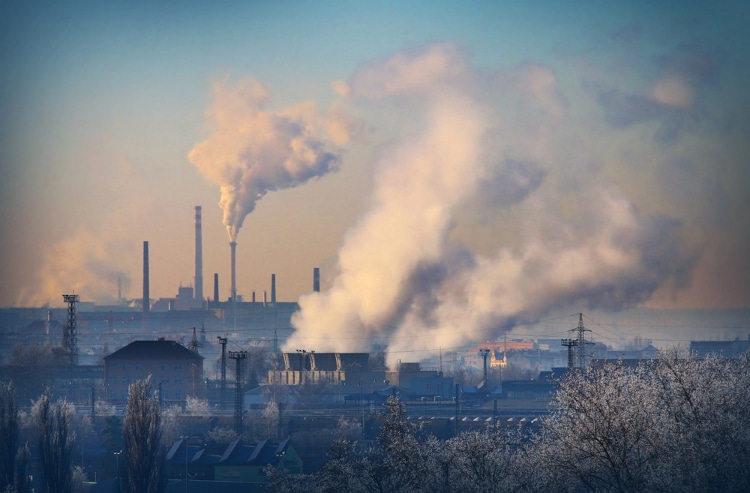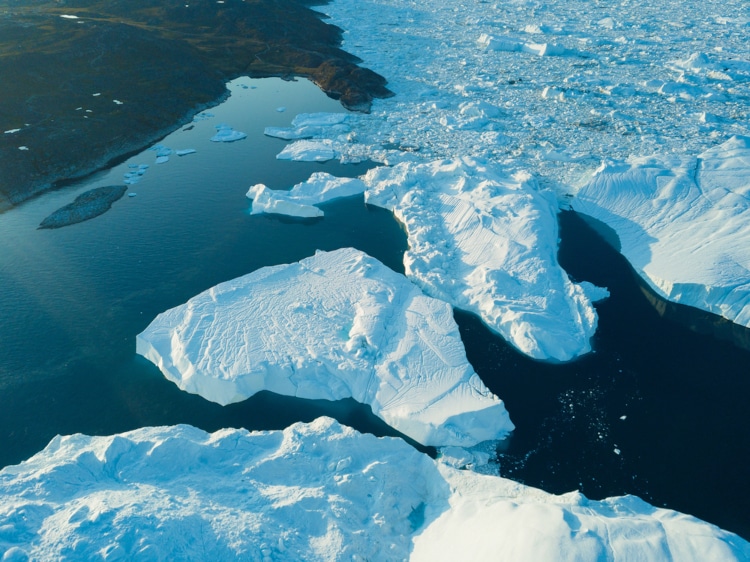
Photo: goinyk/Depositphotos
Global warming is having many disastrous effects on our planet, from more intense heat waves to hurricanes becoming stronger. Recently, scientists found yet another consequence of climate change: it’s slowing down Earth’s rotation, slightly extending the length of a day.
Just as the melting of glaciers endangers animals and coastal communities, it has also contributed to this lengthening of the day. As the meltwater from regions such as Greenland and Antarctica flows into the oceans, its mass is redistributed closer to the equator. This changes the shape of our planet by making it thicker around the middle, leading to the Earth’s full rotation to take more time than usual.
While the change is tiny and unnoticeable to humans—it’s so small that it’s measured in milliseconds—it has effects on computer systems that control financial transactions, navigation, and power grids around the world.
“Everyday life is not sensitive at the one-second level,” Judah Levine, a physicist at the National Institute of Standards and Technology, told NPR. “Technology may be, and people use technology and they don’t quite realize the sensitivity.”
This finding was published in the Proceedings of the National Academy of Sciences, and featured the work of scientists from NASA’s Jet Propulsion Laboratory, ETH Zurich’s Institute of Geodesy and Photogrammetry, and the Department of Physics of the University of Alberta.
For millennia, the Moon has been the biggest influence on the length of days, exerting a pull on Earth, causing the oceans to bulge towards it. However, climate change could become the new dominant factor, per Benedikt Soja, another author of the study. “We have to consider that we are now influencing Earth’s orientation in space so much that we are dominating effects that have been in action for billions of years,” he told CNN.
“This is a testament to the gravity of ongoing climate change,” Surendra Adhikari, another one of the authors of the study, concluded. Her reflection paints a worrying picture. “In barely 200 years,” she says, “we will have altered the Earth’s climate system so much that we are witnessing its impact on the very way Earth spins.”
Recently, scientists found yet another consequence of climate change: it’s slowing down Earth’s full rotation.

Photo: vladvitek/Depositphotos
As water that melts from glaciers is redistributed around the equator, the Earth becomes thicker around the middle, leading to the rotation taking more time than usual—in turn, this makes days longer.

Photo: alonesdj/Depositphotos
While the change is tiny and unnoticeable to humans, it has effects on computer systems that control financial transactions, navigation, and power grids around the world.

Photo: MichalBalada/Depositphotos
h/t: [NPR]
Related Articles:
3.6-Million-Year-Old Preserved Hominid Footprints at Risk of Obliteration by Climate Change
Eye-Opening Video Shows How Earth Could Look in 2050 if We Don’t Address Climate Change
Floating Glass Museum Is a Futuristic Homage to Venice and Global Climate Change
8,000-Year-Old Patagonia Cave Art Illuminates Ancient Climate Change
